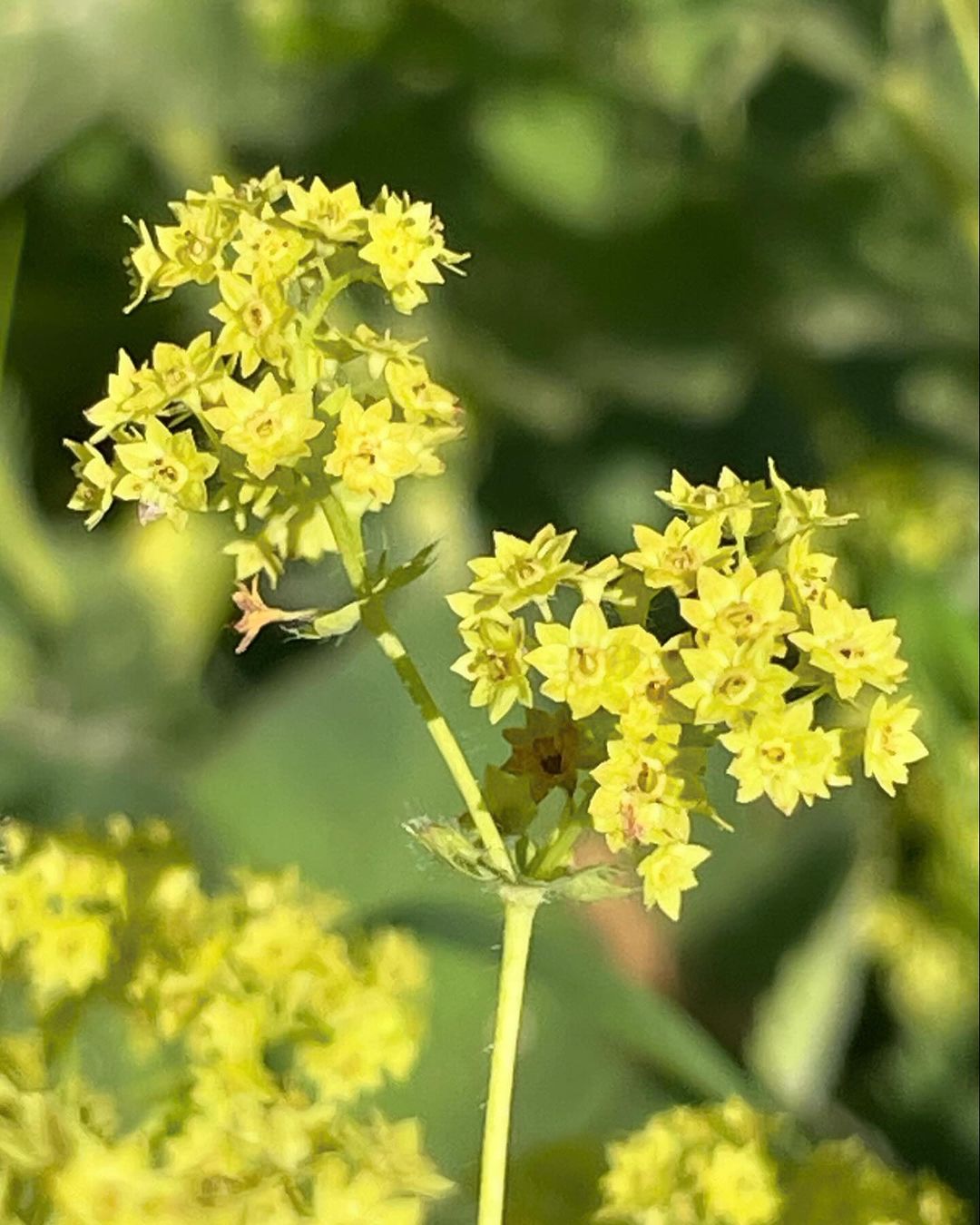Discover the charming Alchemilla (Lady’s Mantle) flower, learn how to grow, care for and use this versatile garden plant. Perfect for beginners and experienced gardeners alike.
Have you ever seen a plant with leaves that hold water droplets like tiny jewels? That’s probably Alchemilla, also known as Lady’s Mantle. Let’s explore this fascinating plant that can add a touch of magic to your garden.
Here’s an information chart for Alchemilla flowers, commonly known as Lady’s Mantle:
AspectDetailsBotanical NameAlchemilla mollisCommon NameLady’s MantlePlant TypePerennialHardiness ZoneZones 3-8Sun ExposureFull sun to partial shadeSoil TypeWell-drained, moist, fertileWateringModerateGrowth HabitClumping, moundingHeight/Spread12-18 inches tall, 12-24 inches wideSpecial FeaturesSoft, scalloped leaves; small, chartreuse-yellow flowers; drought-tolerant; attractive foliage; good for ground cover and borders
What is Alchemilla?

Alchemilla, commonly called Lady’s Mantle, is a group of plants in the rose family. The most popular garden variety is Alchemilla mollis. These plants are known for their pretty leaves and clusters of small, yellow-green flowers.
How Alchemilla Looks
- Leaves: The leaves are round and fan-shaped with scalloped edges.
- Flowers: Tiny yellow-green flowers grow in clusters above the leaves.
- Size: Most varieties grow about 6 to 18 inches tall and wide.
- Special feature: Water beads up on the leaves, creating a beautiful effect.
Where Alchemilla Grows
Alchemilla plants come from Europe and Asia. They grow well in many parts of the USA, especially in areas with cool summers. They’re hardy in USDA zones 3-8.
How to Grow Alchemilla
Growing Alchemilla is pretty easy. Here’s what you need to know:
- Sunlight: They like partial shade to full sun.
- Soil: They prefer well-draining soil that’s moist but not soggy.
- Water: Keep the soil evenly moist.
- Planting: You can plant them in spring or fall.
- Spacing: Plant them about 12 to 18 inches apart.
Taking Care of Your Alchemilla
Alchemilla plants are low-maintenance. Here’s how to care for them:
- Water regularly, especially during dry spells.
- Cut back the flowers after they bloom to keep the plant tidy.
- Divide the plants every 3-4 years to keep them healthy.
Uses for Alchemilla
Alchemilla isn’t just pretty; it’s useful too:
- Ground cover: It spreads nicely to cover bare spots in your garden.
- Edge plants: They look great along pathways or borders.
- Cut flowers: The leaves and flowers work well in bouquets.
- Herbal remedies: Some people use it in traditional medicine (but always check with a doctor first).
Fun Facts About Alchemilla
- The name “Alchemilla” comes from “alchemy” because people once thought the water droplets on the leaves had magical properties.
- In folklore, Lady’s Mantle was associated with the Virgin Mary and was thought to have special powers.
- The leaves are naturally water-repellent, which is why water beads up on them so beautifully.
Potential Problems
While Alchemilla is generally easy to grow, watch out for:
- Powdery mildew: This can happen if the air around the plant is too humid.
- Spreading: Some types can spread quickly, so keep an eye on them.
- Slugs: These pests sometimes like to munch on Alchemilla leaves.
Alchemilla or Lady’s Mantle, is a wonderful plant for gardeners of all skill levels. Its unique leaves and delicate flowers can add charm and interest to any garden. Whether you’re looking for a ground cover, a border plant or just something pretty to look at, Alchemilla might be the perfect choice.
Remember, every garden is unique, and part of the fun is trying new plants and seeing what works best for you. Why not give Alchemilla a try in your garden this year?
Gardening is a great way to connect with nature and create something beautiful. Don’t be afraid to experiment and have fun with it. Happy planting!
For more gardening tips and plant care guides, visit usagardenhub.com.

